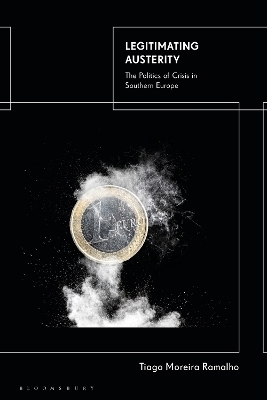
Legitimating Austerity
The Politics of Crisis in Southern Europe
Seiten
2025
Bloomsbury Academic (Verlag)
978-1-350-40529-5 (ISBN)
Bloomsbury Academic (Verlag)
978-1-350-40529-5 (ISBN)
- Noch nicht erschienen (ca. März 2025)
- Versandkostenfrei
- Auch auf Rechnung
- Artikel merken
This book proposes a new analytical angle to the politics of austerity in southern Europe after the euro crisis.
The post-pandemic economic recession has plunged European leaders into fresh debates about how the European economy should be governed. Over a decade since the outset of the euro crisis, the role of austerity and its alternatives remains at the core of political dispute, with the memory of bailouts, conditionality, and the Troika in southern Europe still nourishing profound disagreements.
Contrary to dominant narratives about austerity, domestic politics is central to the definition and legitimation of austerity across countries. Drawing comparisons between Greece, Portugal, and Spain during this period, the book traces the processes of crisis construal and of implementation of austerity, as well as the contentious politics that it generated. In doing so, it demonstrates how the political project of austerity in southern Europe was co-construed at the national, international, and transnational levels, with lessons for new ways to deal with economic recessions.
The post-pandemic economic recession has plunged European leaders into fresh debates about how the European economy should be governed. Over a decade since the outset of the euro crisis, the role of austerity and its alternatives remains at the core of political dispute, with the memory of bailouts, conditionality, and the Troika in southern Europe still nourishing profound disagreements.
Contrary to dominant narratives about austerity, domestic politics is central to the definition and legitimation of austerity across countries. Drawing comparisons between Greece, Portugal, and Spain during this period, the book traces the processes of crisis construal and of implementation of austerity, as well as the contentious politics that it generated. In doing so, it demonstrates how the political project of austerity in southern Europe was co-construed at the national, international, and transnational levels, with lessons for new ways to deal with economic recessions.
Tiago Moreira Ramalho is a researcher in Political Science at the Université libre de Bruxelles, Belgium, working on the politicization of European economic governance. He obtained his Ph.D. in Political Science at Sciences Po Paris, France.
1. Introduction: Where Does Austerity Come From?
2. Making the Southern European Crises
3. Austerity at Work I: Bailing-out Greece
4. Austerity at Work II: Bailing-out Southern Europe
5. Does Austerity Work?
6. Anti-Austerity: From the Streets to Government
7. Beyond Austerity? From the Euro Crisis to the Pandemic
8. Conclusion
| Erscheint lt. Verlag | 20.3.2025 |
|---|---|
| Verlagsort | London |
| Sprache | englisch |
| Maße | 156 x 234 mm |
| Themenwelt | Wirtschaft ► Volkswirtschaftslehre ► Wirtschaftspolitik |
| ISBN-10 | 1-350-40529-9 / 1350405299 |
| ISBN-13 | 978-1-350-40529-5 / 9781350405295 |
| Zustand | Neuware |
| Haben Sie eine Frage zum Produkt? |
Mehr entdecken
aus dem Bereich
aus dem Bereich
ausgehandelt? – wie offen ist die Weltgesellschaft?
Buch | Softcover (2024)
UTB (Verlag)
CHF 30,80
Theorie und Anwendung
Buch | Hardcover (2024)
Vahlen, Franz (Verlag)
CHF 55,70
wie sich unsere Wirtschaftspolitik ändern muss, damit wir globale …
Buch | Hardcover (2024)
Wiley-VCH (Verlag)
CHF 55,95


